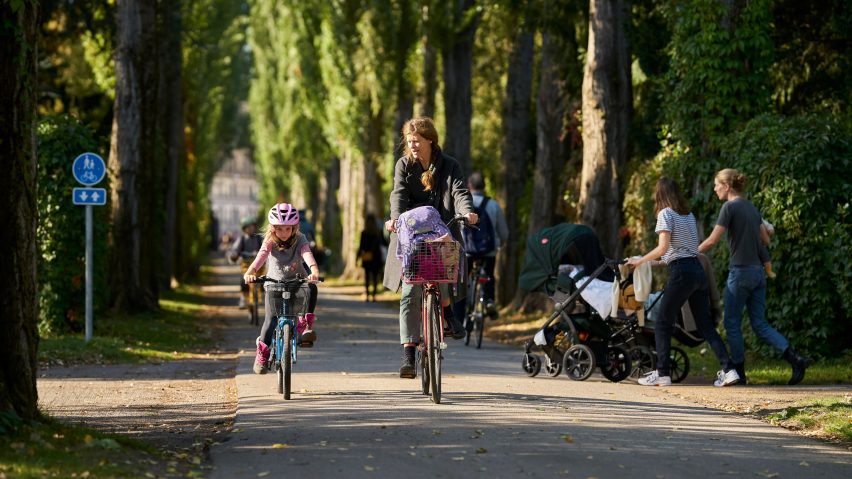
UK prime minister launches plan "to stop councils implementing" 15-minute cities
Prime minister Rishi Sunak has unveiled plans to stop councils in the UK from creating 15-minute cities, as part of a wider scheme to "back drivers" and slam the brakes on "anti-car measures".
The plan, which was set out by UK transport secretary Mark Harper, is designed to "protect drivers from over-zealous traffic enforcement, as part of a long-term government plan to back drivers".
It aims to prevent councils from creating 15-minute cities, which are communities where people can access key amenities by travelling no more than 15 minutes on foot or by bike.
"As part of the ongoing review into low traffic neighbourhoods, the government will also consider measures for existing anti-driver policies that did not secure local consent," the government said.
"The plans also aim to stop councils implementing so called '15-minute cities', by consulting on ways to prevent schemes which aggressively restrict where people can drive."
Plan to also review LTNs as part of focus on motorists
The plan will also include a review of low-traffic neighbourhoods (LTNs) – a scheme in which motor vehicle traffic in residential streets is reduced to encourage walking and cycling – and look at taking measures against "existing anti-driver policies" that did not receive local consent.
A review of guidance on the 20-miles-per-hour speed limit in England is also part of the plan, which is part of the Tory-led UK government's new focus on car drivers.
"The clamp down on drivers is an attack on the day-to-day lives of most people across the UK who rely on cars to get to work or see their families," Sunak said.
"This week the UK government will set out a long-term plan to back drivers, slamming the brakes on anti-car measures across England. We are taking the necessary decision to back the motorists who keep our country moving."
"Too often the private car is vilified"
In addition to this, the government will also look at restricting "the ability of local authorities to generate revenue surpluses from traffic offences and over-zealous traffic enforcement" and strengthening guidance for the use of bus lanes "only when necessary".
It will also launch a consultation on motorcycles using bus lanes.
The government claimed the private car is "vilified" but added that it will continue to invest in public transport.
"Too often the private car is vilified when it has been one of the most powerful forces for personal freedom and economic growth," transport secretary Harper said.
"That's why the government is taking the long-term, necessary decision to back the motorists who keep our country moving," he continued.
"Our plan will sit alongside our continued investment in public transport and active travel as part of a package of measures designed to help people travel in the best way that works for them."
15-minute-city concept subject of conspiracy theories
Sunak's latest plan comes after an outcry as the prime minister pushed back the 2030 ban on the sale of petrol and diesel cars to 2035 as part of his speech on net zero.
The concept of 15-minute cities, which was conceived by urbanist Carlos Moreno and won the Obel Award in 2021, has become the subject of viral conspiracy theories.
Some people claim that the 15-minute-city concept is part of a plan to take away people's freedom and force them to remain in restricted zones, a theory that has been widely debunked.
Among the critics is UK member of parliament Nick Fletcher.
"Ultra-low emissions zones in their present form do untold economic damage to any city, however, the second step after these zones will take away personal freedoms as well," he claimed in a debate in the House of Commons.
The photo is by Emilie Koefoed for the Obel Award.